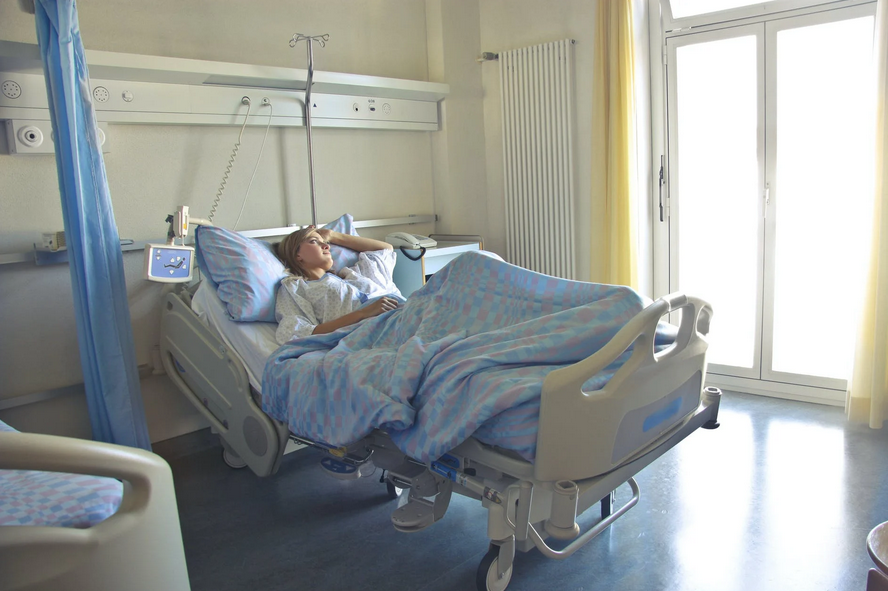latest
Paid sick time support swells amid second surge of COVID-19

By Colin A. Young
NOV. 16, 2020…..Noel Lozada is starting to get worried. Sick with COVID-19 since Nov. 6, she’s been staying home from work but the paid sick time she gets through her job as a group home assistant manager is running out and her recovery from the coronavirus has been slow.
“I don’t think I’m going to have enough [sick] time just simply because this virus is more than what people think it is. It’s more than even what I thought it was. It is very, very slow going to get healthy,” Lozada said Monday. “It is a choice that you need to make of whether you’re going to go back to work, or if you’re going to stay home.”
That decision — whether to stay home from work to recuperate but risk financial peril, or to return to work and risk spreading the coronavirus — is even more difficult for people who get by paycheck to paycheck, like Lozada said she does despite sometimes working 70 hours each week.
“I can’t even imagine what a couple of weeks is going to do to me,” she said. “It is probably going to destroy my life.”
Lozada was part of a press conference Monday afternoon organized by Raise Up Massachusetts to urge the Senate to include in its budget language providing all Massachusetts workers access to paid sick time if they are diagnosed with or quarantining due to COVID-19. Senate budget deliberations begin on Tuesday.
Last week, when the House debated its own version of the budget, an amendment to adopt Raise Up’s sick time proposal was co-sponsored by 115 representatives but did not make it into the final bill despite having the support of a clear majority of members.
In the Senate, Sen. Jason Lewis filed a budget amendment to enact Raise Up’s paid sick time policy proposal and at least 13 other senators had co-sponsored Lewis’s amendment as of Monday afternoon.
The emergency paid sick time amendment Raise Up supports would allow workers not covered by the federal Families First Coronavirus Response Act to access an additional 10 paid sick days for immediate use during the COVID-19 pandemic. The employee would be paid by their employer at their usual rate, with a maximum of $850 per week or $1,700 total. Raise Up said employers would be fully reimbursed by the state, through a trust fund that would be seeded with $55 million through the budget amendment.
Raise Up was among the groups that successfully pushed in 2014 for an earned sick time law, which made most workers in the state eligible to earn at least one hour of earned sick time for every 30 hours worked, and to use up to 40 hours of job-protected sick time each year. But during the COVID-19 pandemic, Raise Up said that’s not enough.
“Five days is simply not enough to get through a 14-day COVID-19 quarantine period and eight months into the COVID crisis, many workers with sick time banks have used up their state sick time, even as the winter surge hits us,” Anabel Santiago, grassroots coordinator for the Coalition for Social Justice and a member of the Raise Up Massachusetts steering committee, said.
Santiago said the federal government provided additional paid sick time for many workers through the Families First Coronavirus Response Act, but “it has a big coverage gap that leaves millions of frontline workers without paid sick time, including workers at companies with more than 500 employees and many employees of health care and residential facilities.” At least 1.8 million workers in Massachusetts are not eligible for that federal aid, Santiago said, citing the Center for American Progress.
“We will not be able to defeat COVID-19 or safely reopen our economy if tens of thousands of people feel the need to go to work, even when they might be sick,” she said.
Al Vega, director of policy and programs for the Massachusetts Coalition for Occupational Safety and Health, said the state Legislature “needs to work more diligently” to make paid sick time available to workers during the pandemic so no one is forced to decide between their livelihood and the health of themselves or others.
“In the midst of a global pandemic isn’t the most common-sense approach to help more workers access more sick time so that they can protect themselves if they do get sick, have the ability to collect their full wages while they recover and, at the same time, limit exposing their coworkers and customers?” he said. Vega added, “No one should lose their job because they choose to keep themselves safe or take care of a loved one who may be recovering.”
-

 Community7 years ago
Community7 years agoNational Shrine of La Salette Festival of Lights 2017 set to begin
-

 Community6 years ago
Community6 years agoMassachusetts State Police looking for good home for retired dogs
-

 Crime6 years ago
Crime6 years agoFall River ranked most dangerous city in Massachusetts according to report
-

 latest7 years ago
latest7 years agoDurfee student allegedly overdoses on marijuana
-

 Community6 years ago
Community6 years agoVideo of Fall River Police goes viral
-

 Causes6 years ago
Causes6 years agoMissing Fall River woman found deceased
-

 Crime6 years ago
Crime6 years agoFall River Police add names to most wanted list
-

 Causes6 years ago
Causes6 years agoFall River teenager reported missing has been found




Mortis Maximus
November 17, 2020 at 2:54 pm
I’m sick and tired of being sick and tired!